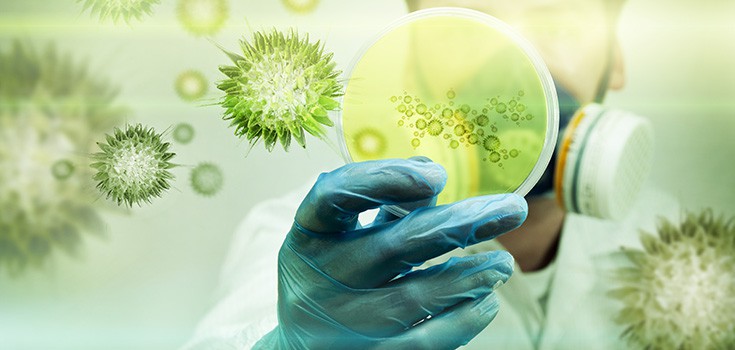Anti-Bacterial Hand Sanitizers and Cleaners Fueling Resistant Superbugs

Drug-resistant superbugs, such as the heavily defiant strain of tiberculosis that is now popping up across the globe, are causing serious shockwaves throughout the medical community. Rampant use of antibiotics for unnecessary conditions and pumping livestock up with an exorbant amount (around 80% of the entire United States antibiotic supply) of drugs is a leading factor, but research shows that anti-bacterial hand sanitizers and cleaners are also contributing to the problem.
The Link Between Anti-Bacterial Hand Sanitizers and Resistant Superbugs
Anti-bacterial products have become commonplace in many households and classrooms across the nation, though they are especially prevalent in India — where scientists say the overall use of antibiotics in drug and cleaning form alike are way overused. In addition to containing the problematic ingredient triclosan, these anti-bacterial hand washes and disinfectants are also contributing to the rapid growth of antibiotic-resistant superbugs that pose a serious risk to human health. At least when trying to ‘treat’ them with the same pharmaceutical interventions that spawned them in the first place.
In fact, it should be noted that both antibiotic drugs and sanitizers also kill beneficial bacteria known as probiotics. Probiotics are integral to a properly functioning immune system and overall health. Without the flourishing of this ‘good’ bacteria, your ability to fight off any infections — let alone superbugs — is compromised.
In a study conducted by Consumer Education & Research Society (CERS) and CHOICE, published in the consumer magazine Insight, the scientists found that soap and water is actually as good or better in fighting off unwanted germs and bacteria without fueling the superbug epidemic. They also found the ubiquitous endocrine-disrupting chemical triclosan to interfere with both thyroid and sex hormone function.
It is easy to see why we should be significantly reducing use of such products, if not halting use altogether.

Yeah, resistant Superbug, straight from invention of the Biologists.
weve know about this for years.
C'mon, be more specific with the title. Yes triclosan is known to be avoided, but not all soaps contain it. I can't stand how these pro-dirty articles pop up every now and then. How in the hell do you think staph infection spreads? It's because not all filthy humans are washing their hands correctly. Bar soap and water are not enough to clean thoroughly. You quote a study, but you didn't quote all of them. Studies can easily be cherry picked to highlight one's stance on an issue. I've seen studies stating that the best time to be exposed to various bacterias is during childhood. That's the critical stage of immune system development. Once it's developed, that's it, no more bacterial exposure is needed. From there on forward, cleanliness is determined by habit. I've also seen studies proving that people that wash their hands often combined with consistent use of hand sanitizer rarely get sick. Did you know that the biggest problem hospitals have is doctors not washing their hands often? Did you know that the biggest thing they highlight in med school is constant hand washing including the frequent use of hand sanitizer? Not killing cross contaminated bacteria from your hands is insanely inconsiderate. Because you're spreading disease around in the common things you touch like doorknobs, gas pumps, shopping carts etc. Don't even think about shaking my hand either. If you can provide a record of the things you've touched, and if you washed your hands correctly then maybe I'll shake; I'd still break out the hand sanitizer shortly after. Unless we're making a business deal, keep your dirty hands to yourself, a simple nod will do.
I used to love hand sanitizer. Such a convenient method of killing hand-borne germs.
No it doesn’t create superbugs… Amazing no bugs have become soap resistant tho